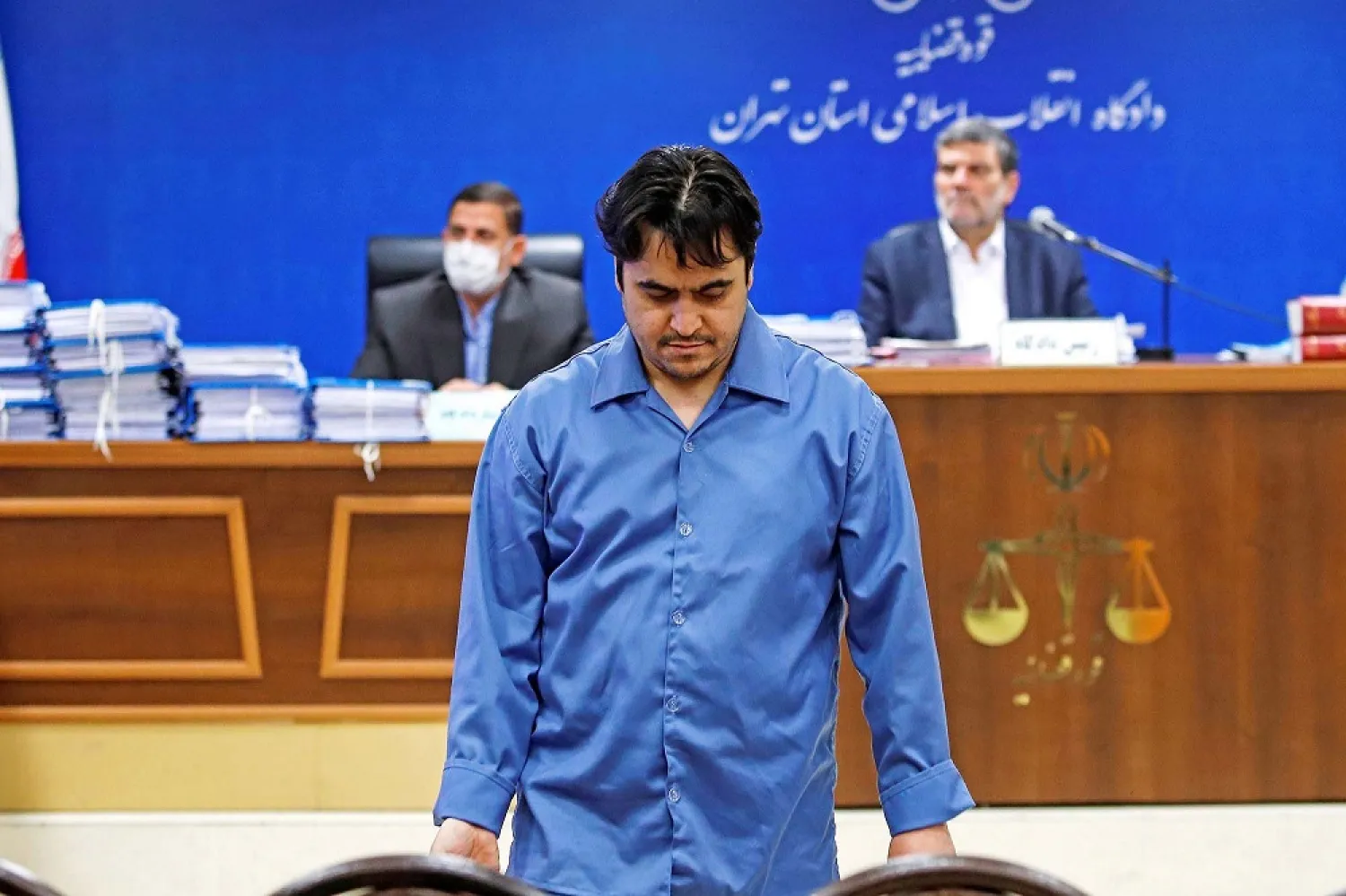Iran on Monday faced a growing international backlash over its execution of the France-based dissident Ruhollah Zam, with Western governments accusing Tehran of abducting him abroad to be put on trial.
Zam was hanged on Saturday after being sentenced to death over his role in protests during the winter of 2017-18, when he ran a popular social media channel that rallied regime opponents.
He had lived in Paris for several years after being granted refugee status in France.
In October 2019 he left Paris on a trip for Iraq.
The motivations for his trip remain unclear but activists say he was lured into travelling to Iraq, was captured by Iranian security forces and then transferred to Iran for trial.
"The US strongly condemns Iran's unjust, barbaric execution of Ruhollah Zam, an Iranian journalist kidnapped abroad by the regime," said US Secretary of State Mike Pompeo.
The German foreign ministry said in a statement Sunday it was shocked by the circumstances surrounding Zam's conviction "particularly by the... kidnapping from abroad".
UN rights chief Michelle Bachelet said she was "appalled" by the execution, adding that there are "serious concerns" that Zam's capture outside of Iran "could amount to an abduction".
After Iranian state TV broadcast what it billed as an "interview" with Zam while detained in July, Bachelet also said his sentence was "emblematic of a pattern of forced confessions extracted under torture and broadcast on state media being used as a basis to convict people."
'Exceptional step'
The international furor over Zam's execution also comes at a hugely delicate time, with European powers keen to revive the international deal on the Iranian nuclear program when incoming US president Joe Biden takes office next year.
Iran's foreign ministry on Sunday summoned Germany and France's envoys to protest EU condemnation of his execution at the weekend.
In a blow to proponents of dialogue and trade with Iran, organizers postponed a major forum on business between Iran and Europe due to begin Monday.
The three-day Europe-Iran Business Forum was to have kicked off with keynote remarks by Iranian Foreign Minister Mohammad Javad Zarif and EU foreign policy chief Josep Borrell, followed by a panel with EU ambassadors.
"The organizing committee of the Europe-Iran Business Forum has decided to take the exceptional step of postponing the conference," the organizers said in a statement late Sunday.
"The European and Iranian business communities continue to see significant potential and value in commercial exchanges," they added, expressing hope the conference would take place in the near future.
The French foreign ministry had said on its Twitter account that following the "barbaric and unacceptable execution" of Zam its ambassador to Tehran, as well as those of Germany, Austria and Italy, were cancelling their participation in the forum.
"#nobusinessasusual," it said in a hashtag.
‘Tool of repression’
But speaking in Tehran, President Hassan Rouhani predicted relations between Iran and Europe would not suffer as a result of the execution.
"I don't think this issue will harm relations between Iran and Europe," Rouhani told reporters, noting that capital punishment is part of Iranian law.
Activists have argued the execution should focus global attention on the use of the death penalty in Iran, coming three months after the execution of wrestler Navid Afkari -- who was convicted of killing an official during protests -- caused widespread anger.
Iran executes more people every year than any country other than China.
Amnesty International said Zam was "abducted during a visit to Iraq in October 2019 by Iran's Revolutionary Guards, apparently with the assistance of Iraqi intelligence authorities, and forcibly returned to Iran."
Human Rights Watch researcher Tara Sepehri Far said in a statement the execution "shows the extent to which Iran has weaponized the cruel and inhumane use of the death penalty as a tool of repression."
Also Monday, the United States for the first time accused Iran of direct involvement in the "probable death" of former FBI agent Bob Levinson, who vanished 13 years ago, and imposed sanctions on two intelligence agents.
"We will not relent in pursuing those who played a role in his disappearance," said Pompeo.









